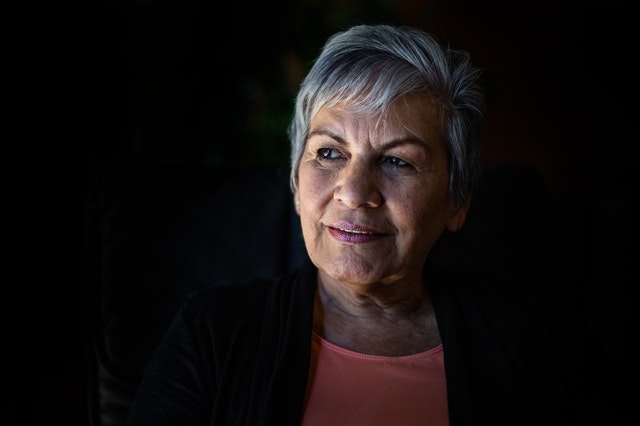
Advice on Divorce Before or After Retirement in Northern Virginia
Divorce doesn’t only affect young couples. Sometimes issues arise that prompt a divorce later in life. However, older couples face unique age-related issues that affect their decision to divorce, including their proximity to retirement. The biggest difference is that people who divorce later in life have less time to financially recover from it. So, should you divorce before or after retirement?
Asset Division
Asset division is part of any divorce. The market value of an asset isn’t always a consideration when making these choices since some assets will be more useful to you in later life. For instance, you may have difficulty choosing who gets to keep the house for several reasons. Let’s look at this, and other types of assets that will factor into your divorce before or after retirement.
Who Gets the House in a Divorce?
Keeping the house will provide you with benefits in the future that could be more important as you age. Consider the following factors:
- Age triggers eligibility for real estate property tax exemptions and waivers.
- Eligibility for a reverse mortgage begins at 62.
- Primary residences receive special treatment for people qualifying for public benefits like Medicaid.
- Keeping the house means you can access the equity even if you decide to downsize.
- Owning a home gives you potential rental income.
- Tax benefits such as deductions for mortgage interest and taxes and exclusions from gain upon sale can be important in later years.
How is Retirement Divided in Divorce?
Dividing retirement plans can be a very complex process. It requires careful attention from your lawyer. You may need a separate court order, called a Qualified Domestic Relations Order (QDRO) to cover the division of retirement benefits. Get a copy of the Summary Plan Description from the retirement plan administrator before you make any decisions about retirement.
Furthermore, you should speak to an attorney about:
- Whether you can get survivor benefits if your spouse dies, even after the divorce
- Whether you are entitled to any contributions made to retirement plans after the divorce
- When you can receive distributions and still avoid tax penalties
- Whether your spouse has taken any loans against a 401(k) plan that should be repaid before the funds are divided
- Whether you can get a hardship withdrawal if needed
- If you are a civilian spouse with military retirement benefits in your divorce, whether your rights are protected under the military’s Survivor Benefit Plan
Division of Social Security in a Divorce?
Social security benefits can’t be divided in court. However, the rules about these benefits are relevant to your post-divorce income. If you were married 10 years or more, and are 62 or older, you can collect benefits from your former spouse’s Social Security record. This will not reduce your former spouse’s benefits.
[Related: Separation Lawyer]Starting at age 62 you are eligible to receive benefits. You may be eligible to draw as much as 50% of your former spouse’s benefit if it has been at least two years since your divorce and you are a certain age.
If your spouse dies, you may be eligible to receive survivor benefits of 100% of your former spouse’s Social Security benefit. Basic requirements include:
- Your marriage lasted at least 10 years.
- You are 60 or older
- You are not entitled to retirement benefits equal or greater to that of your former spouse’s benefit.
Financial Planning for Divorce Before or After Retirement
A divorce in later years may mean you have to work longer and live on less income. Sound financial planning can be of great use to you during these times. Some items to consider:
- Calculate your living expenses and maintain a strict budget.
- Diversify your portfolio.
- Understand tax consequences
- Recognize the value of money and plan for change like inflation.
- Generate income, whether this means earning money or evaluating assets for passive income like rent or dividends.
Estate Planning and Divorce
During, and after your divorce, evaluate the beneficiaries you have designated in wills and retirement plans and update these if needed. You should also review agent designations in medical directives or powers of attorney and ensure that your documents reflect your wishes. Estate planning is important to your divorce in many ways.
First, you may wish to negotiate to receive or provide death benefits from life insurance, a retirement plan, a will, or a trust. Furthermore, a will or life insurance policy can provide security for debts, alimony, and property buyouts. Finally, your divorce settlement can establish trusts to provide for agreed-upon responsibilities. This can include grandchildren’s education or financial support for adult children.
Questions About Divorce Before and After Retirement?
If you are considering a divorce and concerned about how it will affect retirement, please contact Grenadier, Duffett, Levi, Winkler & Rubin, PC to learn more. We offer virtual divorce and separation consultations as well as meetings at our Reston, VA or Alexandria, VA offices.
VA Family Law Firm
Latest Posts
GRENADIER, LEVI, SMITH & RUBIN EARN SPOTS ON 2025 SUPER LAWYER LIST
OR IMMEDIATE RELEASE FOR MORE INFORMATION: Date August 15, 2024 BlueHuki +1 (804) 234-3332 info@bluehuki.com ALEXANDRIA, VIRGINIA – Grenadier,...
Grenadier, Duffett, Levi, Winkler & Rubin Named 2025 Best Law Firm
FOR IMMEDIATE RELEASE FOR MORE INFORMATION: BlueHuki +1 (804) 234-3332 info@bluehuki.com Grenadier, Duffett, Levi, Winkler...

